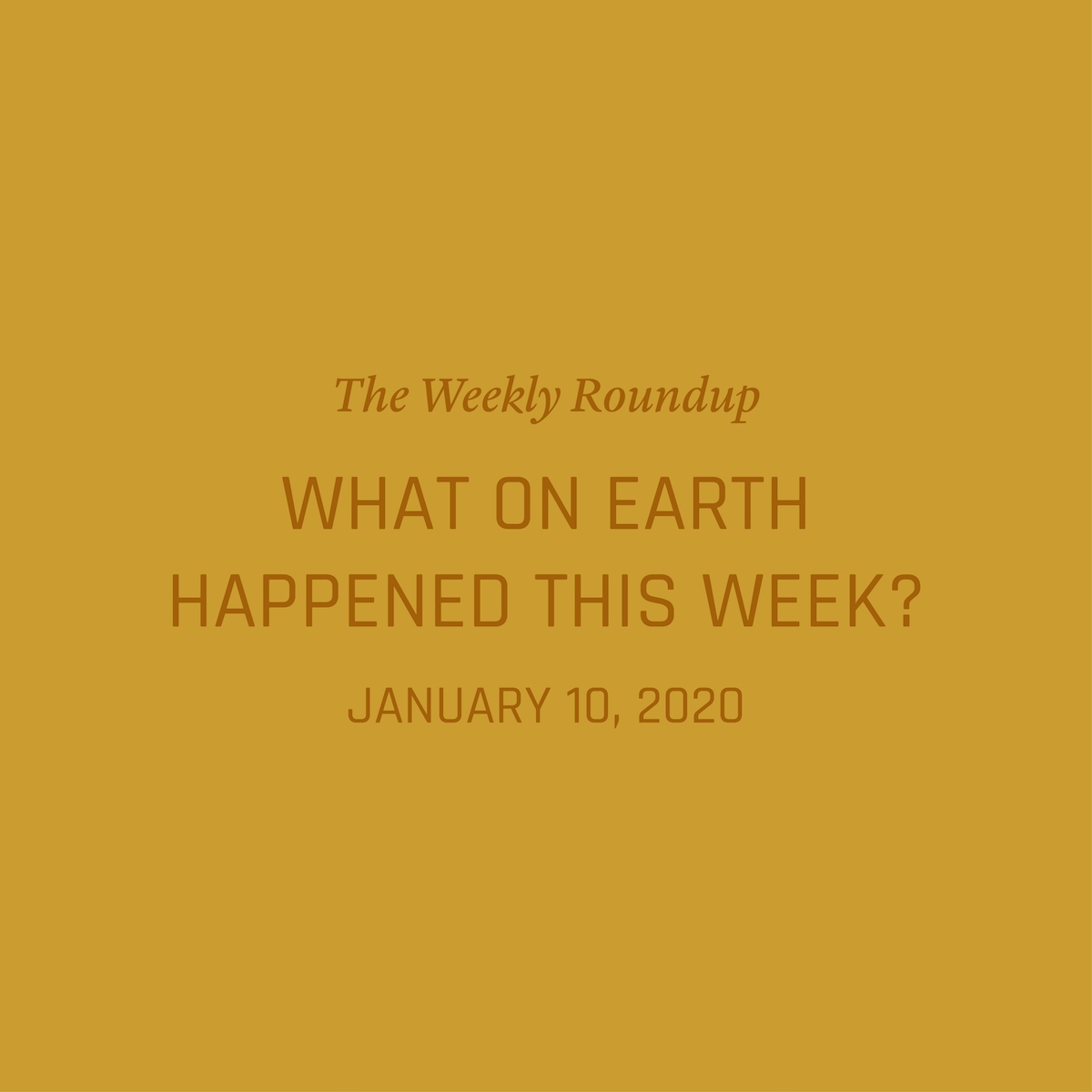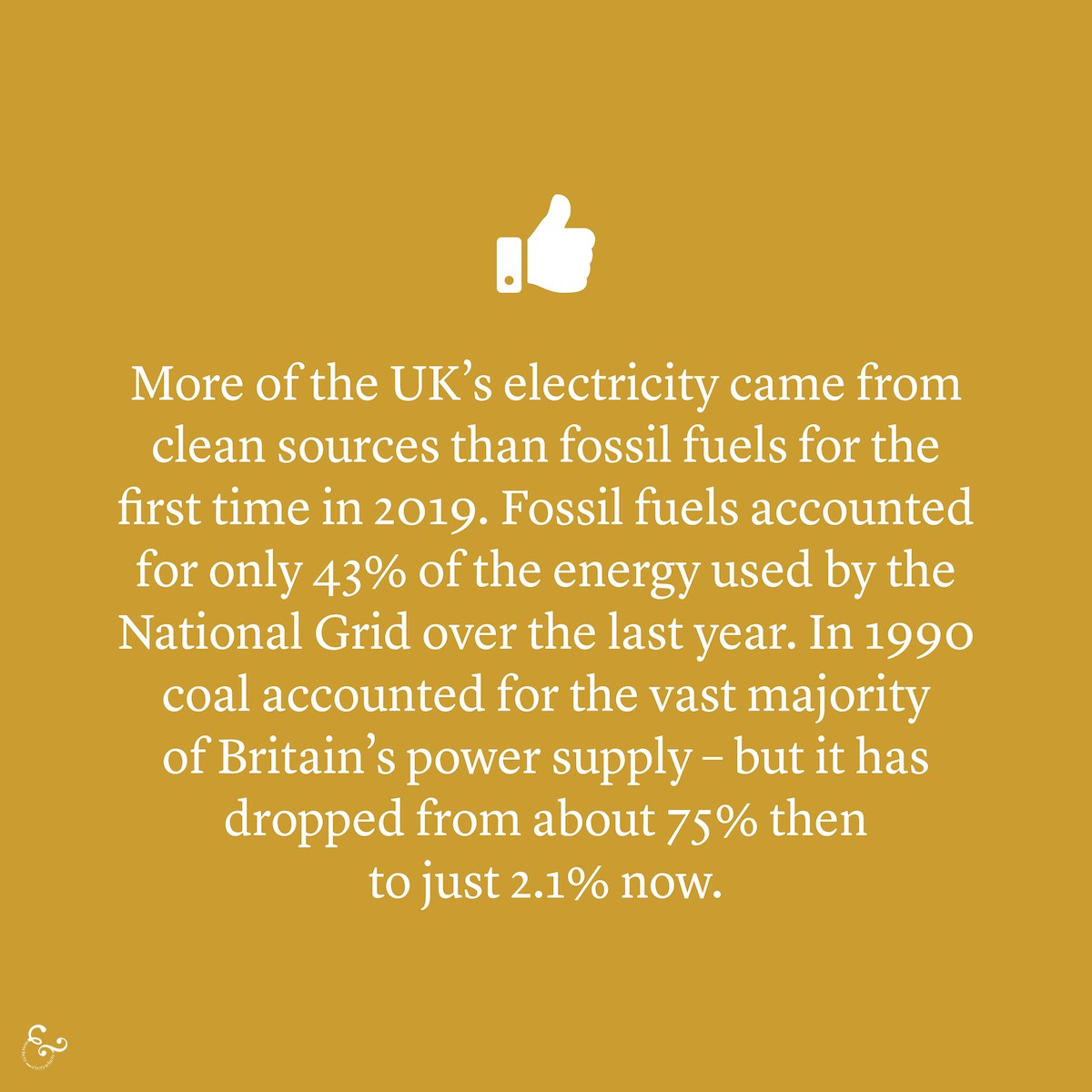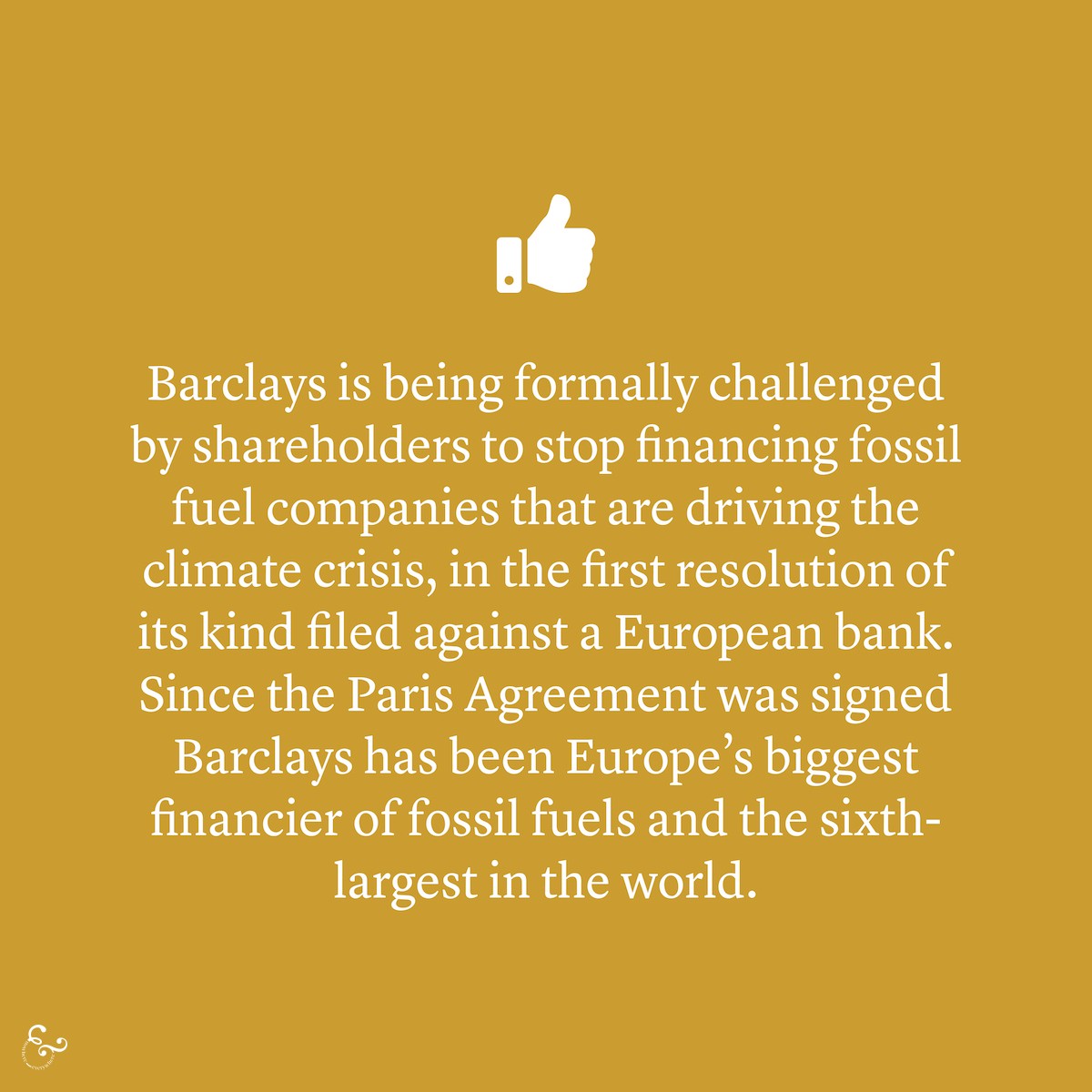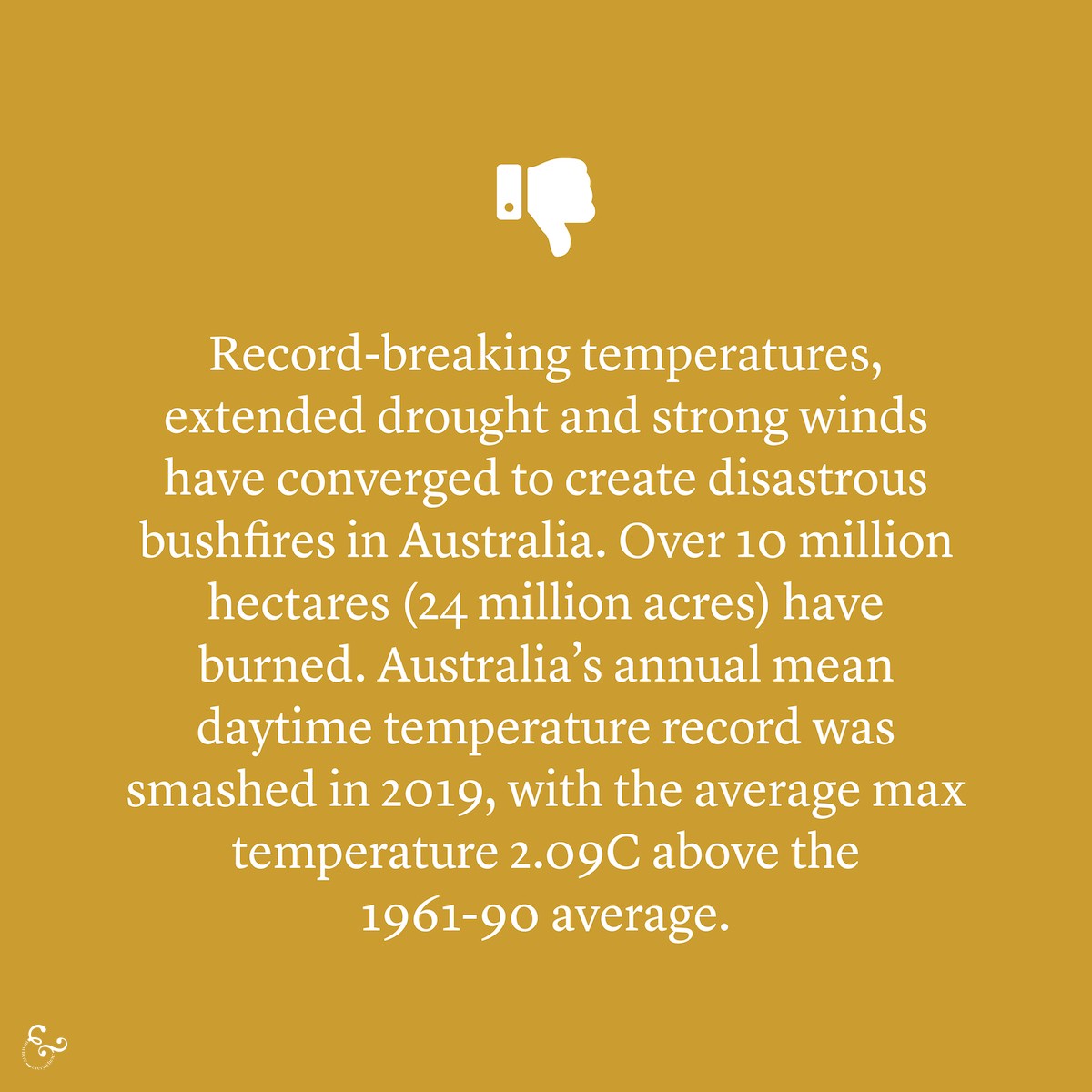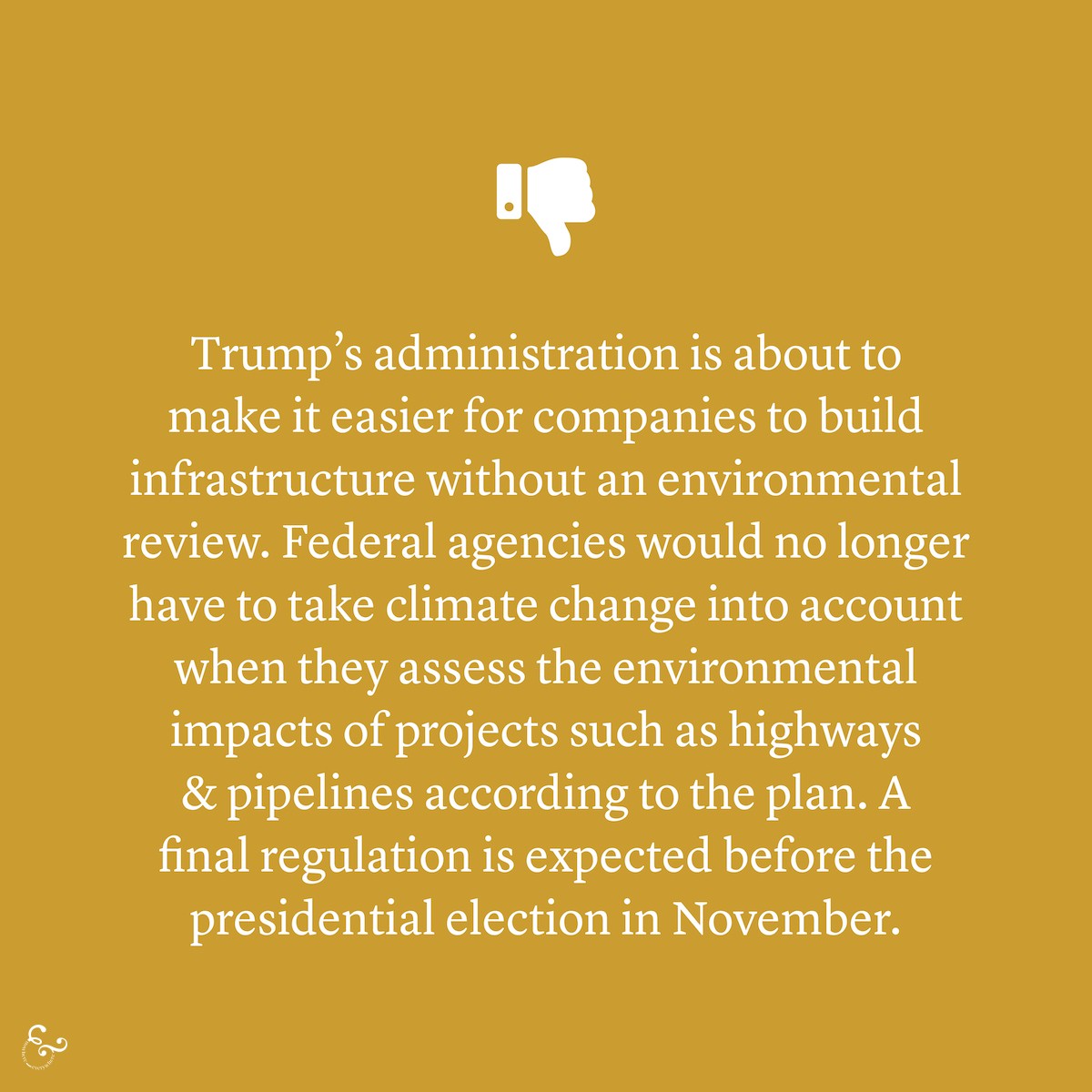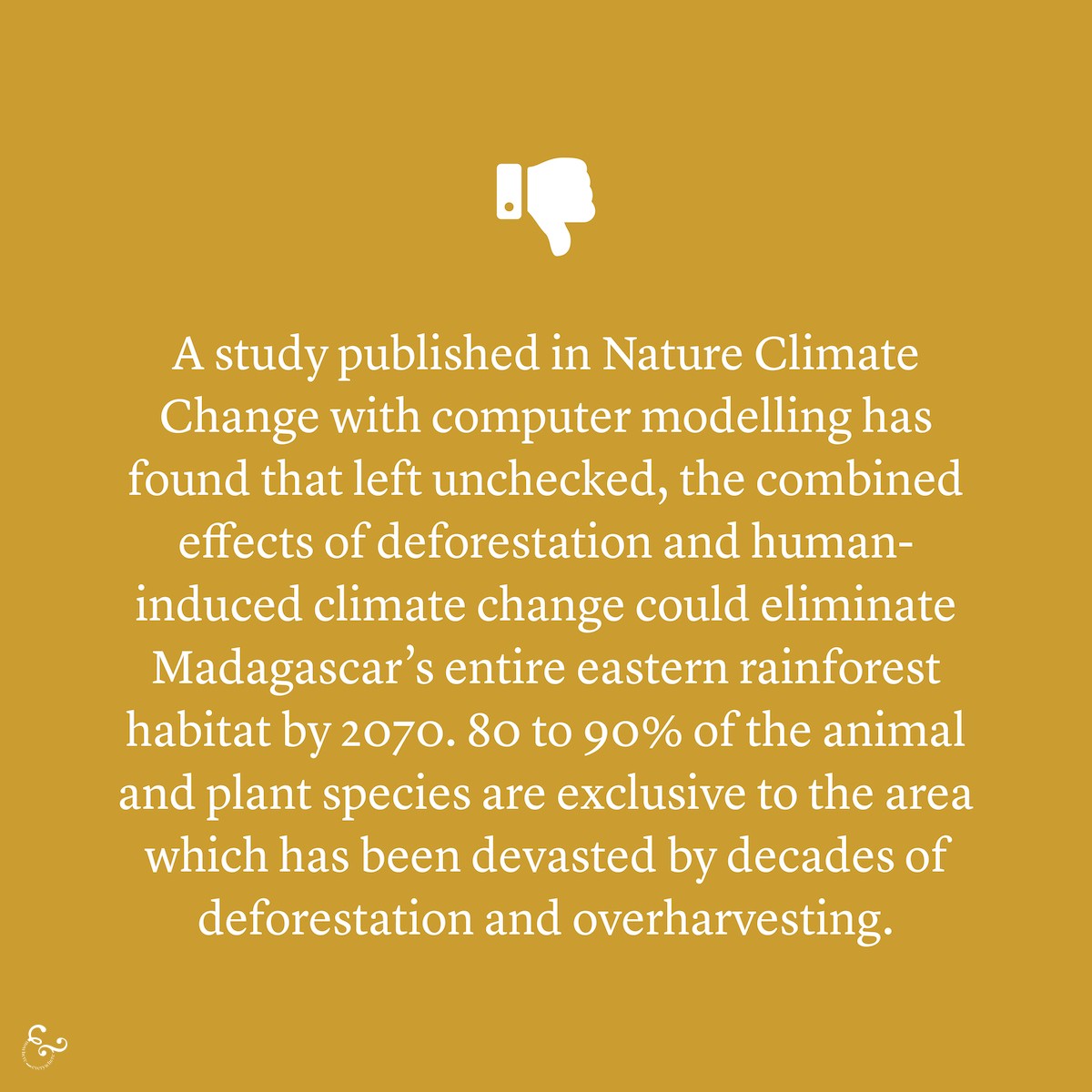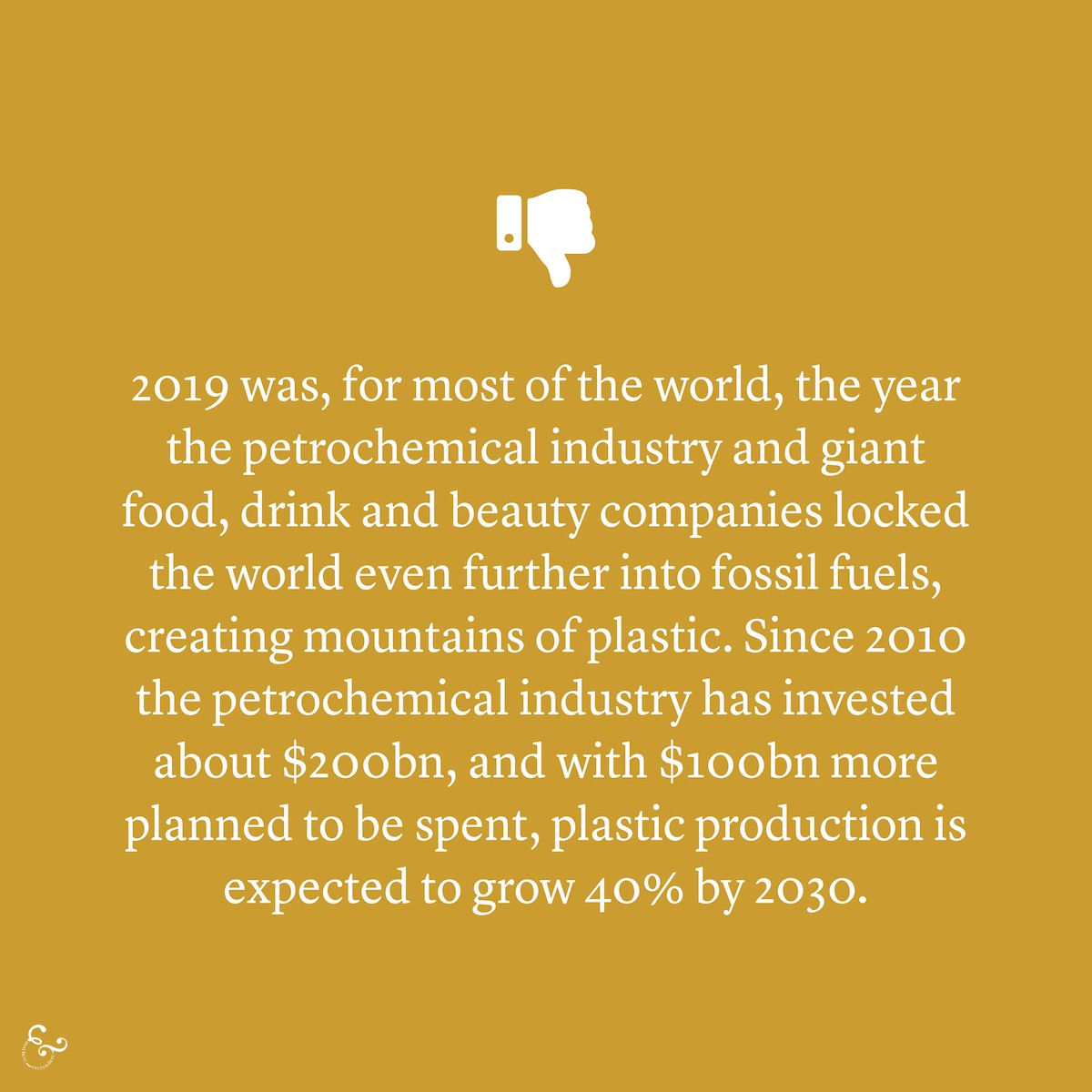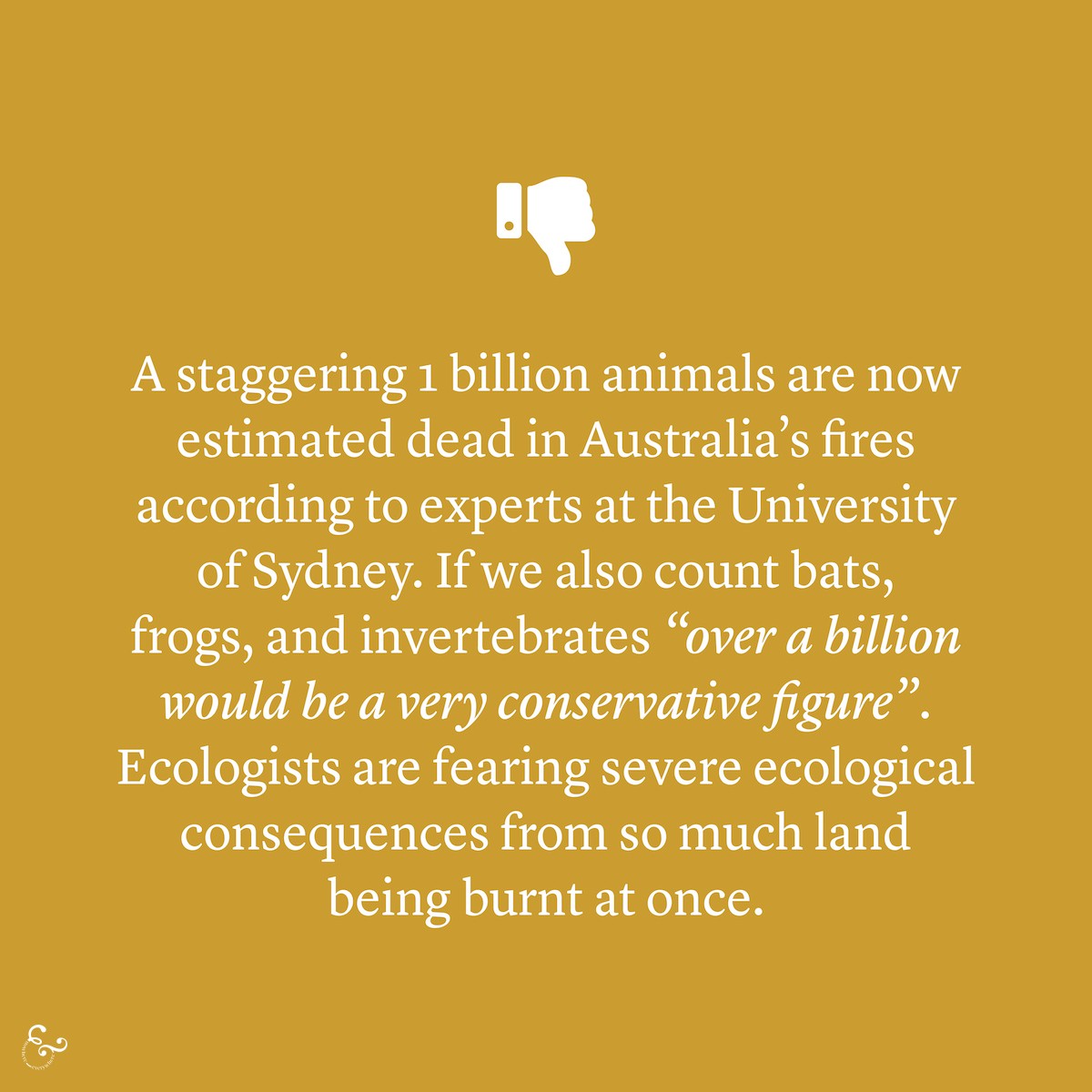Australia / Climate Change
1/ Record-breaking temperatures, extended drought and strong winds have converged to create disastrous fire conditions in Australia. The extreme heat has followed the driest spring on record. An ominous fire season kicked off in September when Queensland’s rain forests started burning, alarming scientists, who said that such fires were extremely rare in the usually cool and wet area. The smoke is so plentiful that NOAA reports it’s “in the process of circumnavigating the planet,” showing up over South America after being pushed there by the wind. Australia is the world’s largest exporter of coal and both of Australia’s major parties are courting support from the country’s powerful mining industry. 2019 has topped the Bureau of Meteorology’s charts for average and maximum temperatures as well as the lowest annual rainfall across the country. Australia’s annual mean temperature was 1.52 degrees Celsius above the 1961-90 average. The daytime temperature record was smashed, with the average maximum temperature coming in 2.09C above the 1961-90 average. (Vox / NYT / Time / The Guardian / Nowhere & Everywhere / ABC)
Australia / Biodiversity
2/ A staggering 1 billion animals are now estimated dead in Australia’s fires. Initially, the number of animals killed was put at 480 million, an estimate that came from Chris Dickman, a biodiversity expert at the University of Sydney. If we also count bats, frogs, and invertebrates Dickman said “over a billion would be a very conservative figure.” Stuart Blanch, an environmental scientist at WWF Australia, also said 1 billion was a modest estimate given how far the fires have recently spread. Other animals have not been burned alive but have faced death due to the destruction of their natural environment, which they rely on for food and shelter. Ecologists are fearing severe ecological consequences from so much land being burnt at once. “There are no winners in fires like this. These fires are homogenizing the landscape. They benefit no species.” (Vox / The Guardian)
World / Plastics
3/ 2019 was, for most of the world, the year the petrochemical industry and giant food, drink and beauty companies locked the world even further into fossil fuels, creating mountains of plastic for communities and future generations to deal with and making it almost too late to keep global temperatures in check. Ultra-cheap shale gas from the decade-long US fracking boom continued to fuel a surge of billion-dollar investments in new cracking plants that separate ethane from gas to produce ethylene, the building block of most plastic. Since 2010 the petrochemical industry has invested about $200bn, and with $100bn more planned to be spent, plastic production is expected to grow 40% by 2030. Shell’s giant $6bn ethane-cracking plant being built near Pittsburgh, will produce 1.6m tons of plastic a year but is just one of dozens of similar size plants planned for the US, India, China and the Middle East. Nearly one-third went to single-use packaging and less than 10% was recycled. (The Guardian)
USA / Climate Change
4/ Trump’s administration is about to make it easier for companies to build pipelines, bridges, and roads without an environmental review. Federal agencies would no longer have to take climate change into account when they assess the environmental impacts of highways, pipelines and other major infrastructure projects, according to a Trump administration plan that would weaken the nation’s benchmark environmental law. Once the proposed rules are filed in the federal register, the public will have 60 days to comment on them, the official said. A final regulation is expected before the presidential election in November. (NYT / Vox)
Madagascar / Climate Change
5/ A study published in Nature Climate Change with computer modelling has found that left unchecked, the combined effects of deforestation and human-induced climate change could eliminate Madagascar’s entire eastern rainforest habitat by 2070. Madagascar — a biodiversity hotspot where 80 to 90 percent of its animal and plant species are exclusive to the area — has been devasted by decades of deforestation and overharvesting. When the researchers ran a more optimistic scenario—one that assumed none of the forest within protected areas would be lost—the result was that half of the island’s rainforests would still be intact by 2070. The scientists now have a clear vision of how to conserve the forests based on that best-case scenario. (National Geographic / First Post)
The good news…
UK / Climate Change
6/ More of the UK’s electricity came from clean sources than fossil fuels for the first time in 2019, the National Grid has said. It was the cleanest year on record because of an increase in the use of zero-carbon fuel such as wind, solar and nuclear. In 2010, Great Britain generated 75% of its electricity from coal and natural gas. In 1990 coal accounted for the vast majority of Britain’s power supply – but it has dropped from about 75 percent then to just 2.1 percent now. Gas made up 38.4 percent. Fossil fuels accounted for only 43 percent of the energy used by the National Grid over the last year. (Independent / The Conversation)
Palau / Ocean
7/ The Pacific nation of Palau has banned sunscreen containing chemicals that are “incredibly toxic” to its coral reefs. The legislation to ban certain sunscreens and skin-care products came into effect on January 1 and is part of Palau’s new Responsible Tourism Education Act. Stores selling prohibited sunscreen could face fines of up to US$1,000, and bottles will be confiscated from tourists upon entry into the country. Reef-safe sunscreens are permitted in Palau. (ABC)
Europe / Climate Change
4/ Barclays is being formally challenged by shareholders to stop financing fossil fuel companies that are driving the climate crisis, in the first resolution of its kind filed against a European bank. Eleven pension funds managing £130bn have filed the motion calling on Barclays to bring its activities into line with the Paris Climate Agreement. The resolution is set to be voted on at Barclays’ annual meeting in May, and would require the bank to stop funding any company that has not aligned itself with the Paris goals. Since the Agreement was signed Barclays has been Europe’s biggest financier of fossil fuels and the sixth-largest in the world. (Independent)
Other notables…
- Canberra has experienced its worst air quality on record, as bushfire smoke became trapped by atmospheric conditions. An ACT health spokesperson said the AQI reading for fine particles peaked at 7700; 200 is considered hazardous. (ABC)
- The United Parcel Service (UPS) predicts that it will process a record 1.9 million returns on 2 January, which it has dubbed National Returns Day. More than half (55%) of Americans said they planned on returning unwanted holiday gifts within a month of receiving them. Each year Americans return about 3.5 billion products, and five billion pounds of returned goods ended up in US landfills. (The Guardian)
- The last decade was the second hottest in the past 100 years in the UK, with eight new high-temperature records set. Last year, a maximum of 21.2C was reached on 26 February, in London – the hottest February day ever recorded. (BBC)
- Ocean acidification threatens to cause billions of dollars in damage to the U.S. economy, harming everything from crabs in Alaska to coral reefs in Florida and the Caribbean, NOAA researchers said in a new report. (Scientific American)
- Rare and unique flora and fauna in Western Australia’s Stirling Range may never fully recover from a massive series of fires which devastated the national park, which is considered one of the world’s most important biodiversity hotspots. The series of fires sparked by lightning left almost half the rugged park scorched. The National Park has more than 1,500 species of flora packed within its boundaries — more than the entire British Isles. (ABC)
- Student researchers have made a dismaying microplastics find in the Arctic Ocean. Although plastic has been previously reported in sea ice collected from the Central Arctic, Beaufort Gyre and the Eurasian Basin, this was the first time that plastics were found in ice from the Northwest Passage Project. (Phys)
- Marine conservation campaigners have called for trawlers to be banned from fishing within three miles of Scotland’s shoreline to help depleted fish stocks and seabeds to recover. (The Guardian)
- A new study, accepted in Environmental Research Letters, has found that diverse natural forests with a mix of tree species are more reliable and stable at absorbing and storing carbon than plantations dominated by just a few tree species, both over time and across diverse conditions. (Phys)
- Russia’s government has published a plan of action that outlines 29 broad measures to both mitigate damage and take advantage of opportunities created by climate change. The plan’s publication comes as 2019 was declared the hottest year on record in Russia and Moscow experienced its warmest December in more than a century. (Moscow Times)
- Chlorine-washed chicken and hormone-treated beef will be kept out of the UK under any trade deal with the US, the environment secretary has promised. (BBC)
- After bearing the brunt of jihadist dynamite and looting by thieves, the archaeological treasures of Afghanistan’s Bamiyan province are facing a new and possibly more daunting threat: climate change. (Phys)
